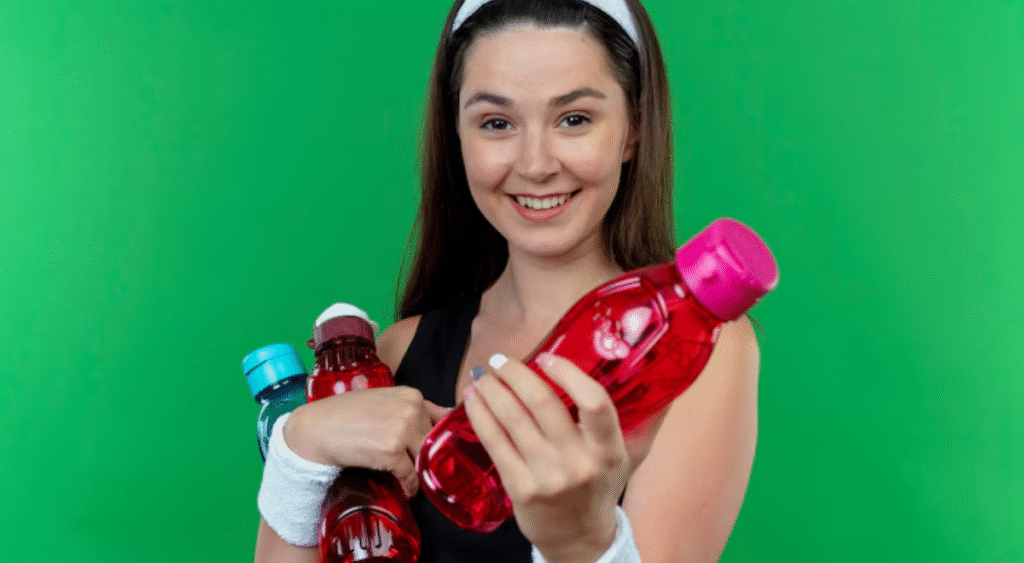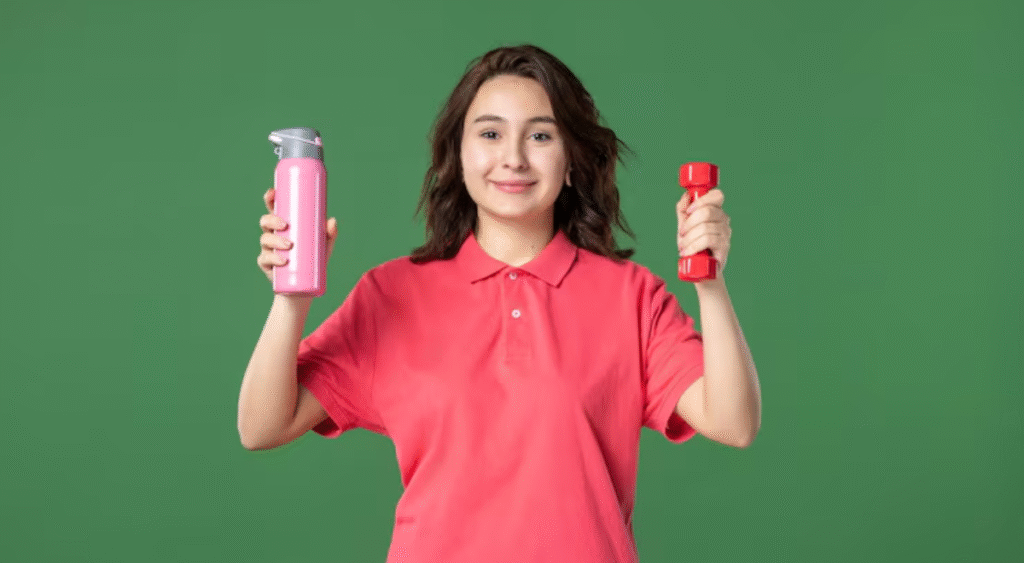
Coca-Cola promotes healthy lifestyle initiatives in response to growing consumer demand for wellness and sustainability, adapting its iconic brand to align with modern health trends. As a global beverage leader, Coca-Cola has faced scrutiny over the health impacts of its sugary drinks, prompting the company to diversify its portfolio, support active lifestyles, and emphasize sustainability. This article explores how Coca-Cola navigates these challenges, targeting health-conscious consumers in the USA while maintaining its cultural legacy. With a focus on product innovation, marketing strategies, and community engagement, we’ll uncover how Coca-Cola promotes healthy lifestyle choices, backed by stats, examples, and a call-to-action for readers.
The Evolution of Coca-Cola’s Health-Focused Strategy
Coca-Cola promotes healthy lifestyle choices by expanding its product offerings to include low- and no-sugar options, addressing the needs of health-conscious consumers. The company introduced Diet Coke in 1982, targeting those seeking lower-calorie beverages, followed by Coca-Cola Zero Sugar, which offers the classic Coke taste without calories. In 2021, Coca-Cola reformulated Coca-Cola Zero Sugar, improving its taste to drive demand, with 88% of customers who tried it saying they would repurchase. These products cater to a broad demographic, particularly adults aged 25–40 who prioritize health without sacrificing flavor.
Must Check:Exploring Make1M.com Luxury Yachts: The Ultimate Sea Adventure
Beyond products, Coca-Cola promotes healthy lifestyle through marketing campaigns that emphasize active living. The Coca-Cola Cup in the Philippines, for example, encourages youth participation in sports, positioning the brand as a supporter of physical activity. However, critics argue that such initiatives shift focus from dietary improvements to exercise, potentially downplaying the health risks of sugary beverages. Despite this, Coca-Cola’s efforts reflect a strategic pivot to align with the growing wellness movement in the USA, where 73% of consumers actively seek healthier beverage options, according to a 2023 Statista report.

Product Diversification for Health-Conscious Consumers
Coca-Cola promotes healthy lifestyle by diversifying its portfolio to include beverages that align with health trends. In addition to Diet Coke and Coca-Cola Zero Sugar, the company launched Coca-Cola with Coffee, a low-calorie, caffeinated drink targeting on-the-go professionals. In 2019, Coca-Cola introduced Orange Vanilla Coke Zero, its first new flavor in a decade, responding to consumer demand for variety and lower sugar content.
The company also offers smaller packaging sizes, such as 8-ounce cans, to promote portion control. This caters to families and individuals who value moderation, a key aspect of a healthy lifestyle. In the USA, where obesity rates hover at 42% (CDC, 2022), these options resonate with consumers seeking balance. Coca-Cola’s Freestyle machines, installed in over 50,000 locations globally, allow customization with 117 low-calorie and 130 no-caffeine options, empowering consumers to make healthier choices.
Marketing a Healthier Lifestyle
Coca-Cola promotes healthy lifestyle through emotionally engaging campaigns that connect with its target audience of teens, young adults, and families. The “Share a Coke” campaign, launched in 2014, personalized bottles with names, encouraging social connections and moments of joy. This campaign increased weekly drink sales by 17% and boosted brand growth by 11%. By associating Coca-Cola with happiness and togetherness, the brand appeals to psychographic segments like “explorers” and “aspirers” who value fun and authenticity.
Digital marketing plays a significant role, with Coca-Cola leveraging social media platforms like Instagram and YouTube to promote healthier options. The 2016 #ThatsGold campaign, tied to the Olympics, targeted youths aged 13–20, using influencers and athletes to highlight active lifestyles. Coca-Cola’s AI-powered Freestyle machines also adapt to environments, promoting water and performance-based drinks in gyms, aligning with health-focused settings.
Sustainability as Part of a Healthy Lifestyle
Coca-Cola promotes healthy lifestyle by integrating sustainability into its brand ethos, appealing to environmentally conscious consumers. The company reduced its brand portfolio from 400 to 200 to focus on sustainable, high-impact products. Its “World Without Waste” initiative aims to make all packaging recyclable by 2030, addressing consumer concerns about environmental impact. In the USA, 68% of millennials prioritize eco-friendly brands (Nielsen, 2022), making sustainability a key driver of Coca-Cola’s health-conscious appeal.
Coca-Cola also invests in water stewardship, replenishing 100% of the water it uses in its beverages. These efforts align with the World Health Organization’s “One Health” concept, which links human health to environmental well-being. By promoting recycling and reducing its environmental footprint, Coca-Cola positions itself as a brand that supports holistic wellness.
Addressing Health Criticisms
Despite its efforts, Coca-Cola faces criticism for promoting sugary drinks linked to obesity and diabetes, particularly among vulnerable populations. A 2021 UK study noted that Coca-Cola ads often target communities with higher health inequalities, raising ethical concerns. In 2015, Coca-Cola announced it would no longer fund research that solely promotes physical activity as a health solution, acknowledging the need for dietary focus.
To counter these concerns, Coca-Cola promotes healthy lifestyle by providing clear nutritional information and investing in sugar reduction. The company reduced sugar across its portfolio by 20% between 2015 and 2022. However, critics argue that Coca-Cola’s marketing still emphasizes lifestyle over product health impacts, creating a perception of health without addressing core issues.

Engaging the USA Audience
Coca-Cola promotes healthy lifestyle in the USA by tailoring its strategies to local preferences. The brand collaborates with American influencers and sponsors events like the FIFA World Cup to resonate with diverse demographics. Its focus on family-sized packaging and health-conscious products like Diet Coke appeals to middle-class households, while smaller cans target urban professionals. With 34.1% of Coca-Cola’s global revenue coming from North America in 2021, the USA remains a key market.
The brand’s psychographic segmentation targets “conscious progressives” who value personal growth and authenticity. Campaigns like the “Happiness Machine” video, which went viral with millions of YouTube views, emphasize shared experiences, fostering emotional connections with American consumers.
Call-to-Action: Join the Movement
Coca-Cola promotes healthy lifestyle choices, and you can join the movement! Explore Coca-Cola’s low- and no-sugar options like Coca-Cola Zero Sugar or customize your drink at a Freestyle machine. Support sustainability by recycling bottles and choosing brands that prioritize the planet. Visit coca-colacompany.com to learn more about their health and sustainability initiatives, and share your healthy lifestyle moments with #CocaColaHealthyLiving on social media.
FAQs About Coca-Cola’s Healthy Lifestyle Initiatives
- How does Coca-Cola promote a healthy lifestyle?
Coca-Cola promotes healthy lifestyle choices through low- and no-sugar products like Diet Coke and Coca-Cola Zero Sugar, smaller packaging for portion control, and campaigns like the Coca-Cola Cup that encourage physical activity. - What products does Coca-Cola offer for health-conscious consumers?
Coca-Cola offers Diet Coke, Coca-Cola Zero Sugar, and Coca-Cola with Coffee, alongside 117 low-calorie and 130 no-caffeine options via Freestyle machines. - Does Coca-Cola address environmental health concerns?
Yes, Coca-Cola promotes healthy lifestyle by reducing its environmental impact through recyclable packaging, water replenishment, and the “World Without Waste” initiative aiming for 100% recyclable packaging by 2030. - How does Coca-Cola target the USA market for healthy living?
Coca-Cola tailors its USA marketing with localized campaigns, influencer partnerships, and products like Diet Coke, appealing to health-conscious families and professionals. - Are there criticisms of Coca-Cola’s health initiatives?
Critics argue that Coca-Cola’s focus on physical activity and lifestyle marketing downplays the health risks of sugary drinks, though the company has reduced sugar by 20% since 2015.
